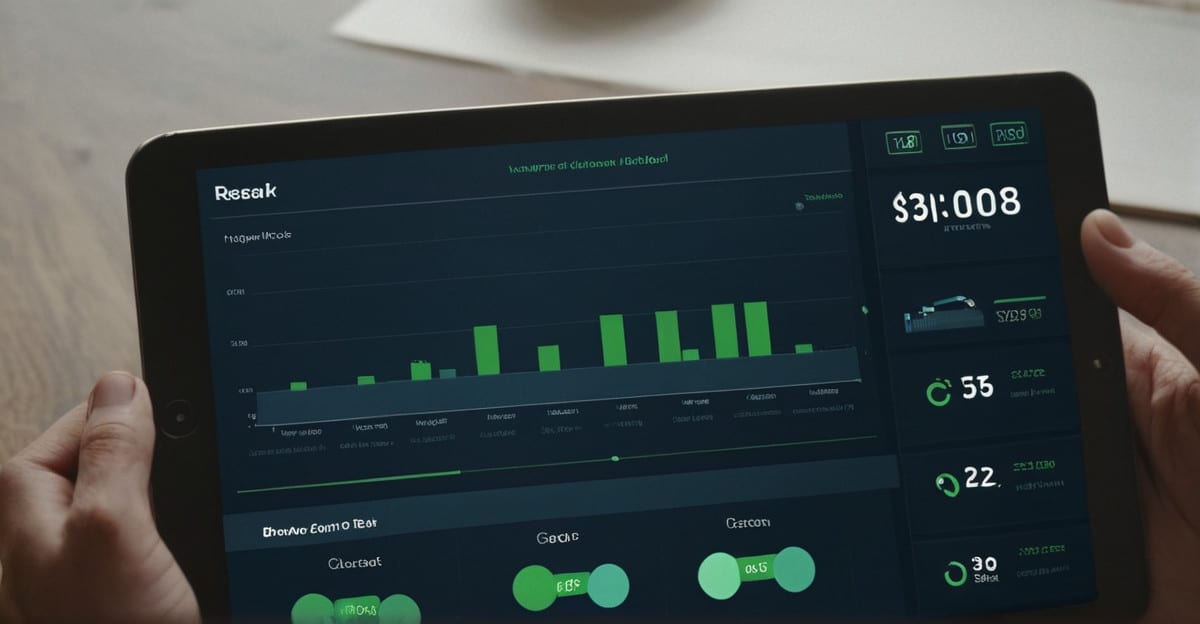Introduction to Freelance Finances in 2024
Greetings from The Ultimate Guide to Freelance Finances: Tips & Tricks for 2024. Effective money management is more important than ever as the freelancing economy expands. Knowing how to manage your finances can have a big impact on your success and peace of mind, regardless of experience level or inexperience. We’ll cover everything in this book, to help you negotiate the financial hurdles of freelancing in 2024, from investing and tax preparation to budgeting and saving.

Creating a Freelance Budget
Making a sound budget is one of the first stages in managing your freelancing finances. A budget facilitates tracking your spending, understanding your income, and making future plans. Begin by enumerating all of your revenue streams, encompassing customer payments, side jobs, and other revenues. Next, divide your expenditures into two categories: variable costs (such as entertainment and groceries) and fixed costs (such as utilities and rent).
To make this process easier, use budgeting programs like Mint or YNAB (You Need A Budget). You can stay on top of your budget, track your spending, and create financial goals with the aid of these tools. Recall that the cornerstone of any freelancer’s financial security is a carefully thought-out budget.
Saving for Taxes
You must pay your own taxes if you work as a freelancer, which can be a difficult undertaking if you’re unprepared. It’s imperative that you set aside money from your income for taxes. It’s a good idea to set aside 25–30% of your income for this purpose. Even while this can seem like a lot, it will help you avoid financial stress come tax season.
To save money on taxes, think about opening a separate savings account. In this manner, you can quickly deposit a portion of every payment you get into this account. Furthermore, you may make sure you’re in compliance with the most recent tax regulations and understand your tax obligations by using tax software such as strong>TurboTax or by speaking with a tax specialist.

Managing Irregular Income
Managing erratic revenue is one of the main problems faced by freelancers. Freelancers don’t get a fixed salary as regular employees do, which can make saving and budgeting more difficult. Think about making a baseline budget based on your lowest anticipated income to deal with this. Any additional money made can be put toward investments or savings.
Establishing an emergency fund is also crucial. Save enough money to cover your living expenses for at least three or six months. This fund will act as a safety net in case of unforeseen costs or slow times. Qapital and strong>Simple are two examples of tools that can help you automate saves and gradually increase your emergency fund.
Tracking Business Expenses
It’s important to keep track of your business spending for tax and budgetary concerns. You can lower your taxable income and claim deductions by keeping accurate expense records. To make this procedure go more quickly, make use of programs like strong>Expensify or strong>QuickBooks. With the help of these apps, you can easily scan receipts, classify expenses, and create expense reports.
Instead of waiting until the end of the month or year, make it a practice to record your costs on a regular basis. It will be simpler to handle your money and get ready for tax season if you follow this routine. Recall that you can reduce your taxes to a greater extent if you keep your expenses more organized.
Investing as a Freelancer
One crucial component of a freelancer’s financial planning is investing. Since independent contractors do not have access to employer-sponsored retirement plans like regular workers do, managing your own investments is crucial. Open a retirement account first, such as a SEP IRA (Simplified Employee Pension) or an IRA (Individual Retirement Account).
Think about spreading your investments over a variety of asset classes, including mutual funds, equities, and bonds. To manage your portfolio, use investment platforms such as Vanguard or Betterment. Remember that persistence and a long-term outlook are essential for successful investing. Over time, even modest, consistent payments can add up to a large amount.

Utilizing Financial Tools and Apps
In the current digital era, freelancers may manage their finances with the aid of a plethora of tools and applications. These tools can help you streamline your financial management and save time on tasks like budgeting, spending monitoring, invoicing, and tax preparation. Xero, Wave, and FreshBooks are a few of the well-liked financial tools for independent contractors.
These apps frequently have features designed with freelancers in mind, like time tracking, project-based income tracking, and simple invoicing. Investigate various tools to see which ones will work best for you and fit well with your workflow.
Planning for Retirement
For independent contractors, retirement planning is an essential component of financial management. In the absence of employer-sponsored retirement benefits, independent contractors must take proactive measures to guarantee a stable financial future. Determine your required retirement income by projecting your projected spending and desired lifestyle.
Create a retirement account and start contributing on a regular basis, such as a Solo 401(k) or a Roth IRA. To optimize your investments, take advantage of tax-advantaged retirement savings choices. To ensure you’re on pace to reach your retirement goals and to establish a personalized retirement plan, think about speaking with a financial advisor.

Preparing for Tax Season
For independent contractors, tax season may be quite stressful, but with the right planning, it can go lot more smoothly. Arrange all of your financial records first, such as receipts for expenses, income statements, and any applicable tax forms. To assist you in navigating the difficulties of freelance taxes, use tax software such as strong>H&R Block or consult a tax specialist.
Recognize the deductions that are available to independent contractors, including expenses for professional development, travel, and home office expenses. Maintaining thorough records all year long will help you file your taxes accurately and quickly by ensuring you don’t miss out on any important deductions.
Conclusion
Although handling your finances as a freelancer can be difficult, you can succeed financially if you use the correct techniques and resources. Every facet of your financial management, from budgeting and tax preparation to investing and retirement planning, is vital. Recall that the secret is to maintain organization, take initiative, and keep learning about sound financial practices.
We anticipate The Complete Manual on Freelance Finances: Strategies and Advice for 2024 has given you insightful information and useful advice to help you manage your finances as a freelancer. You may create a stable financial future and concentrate on expanding your freelancing career by putting these tactics into practice.






